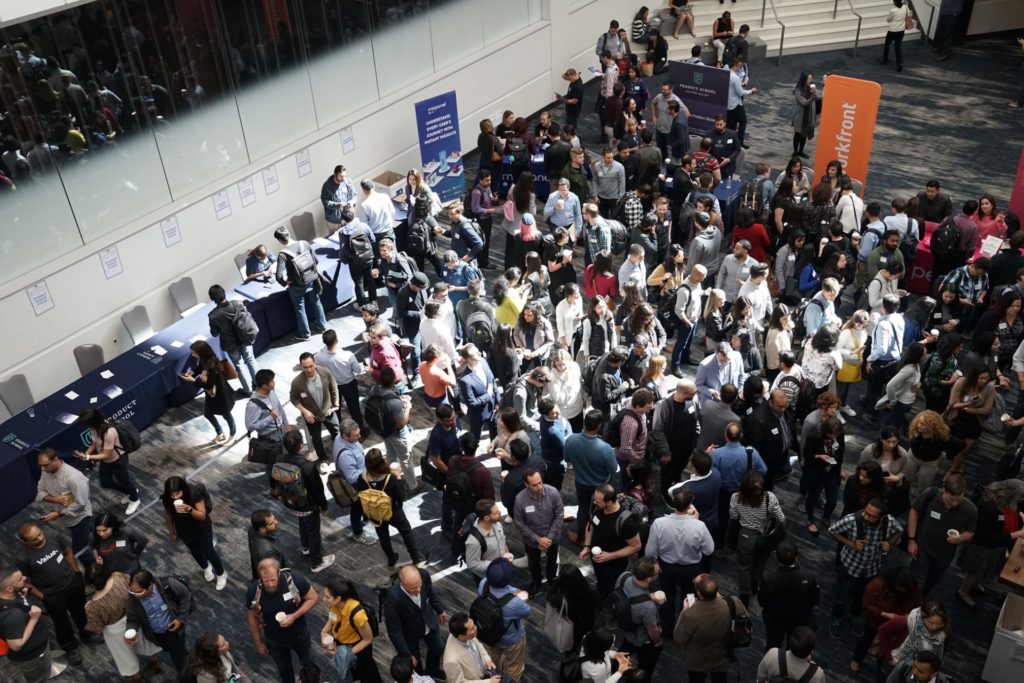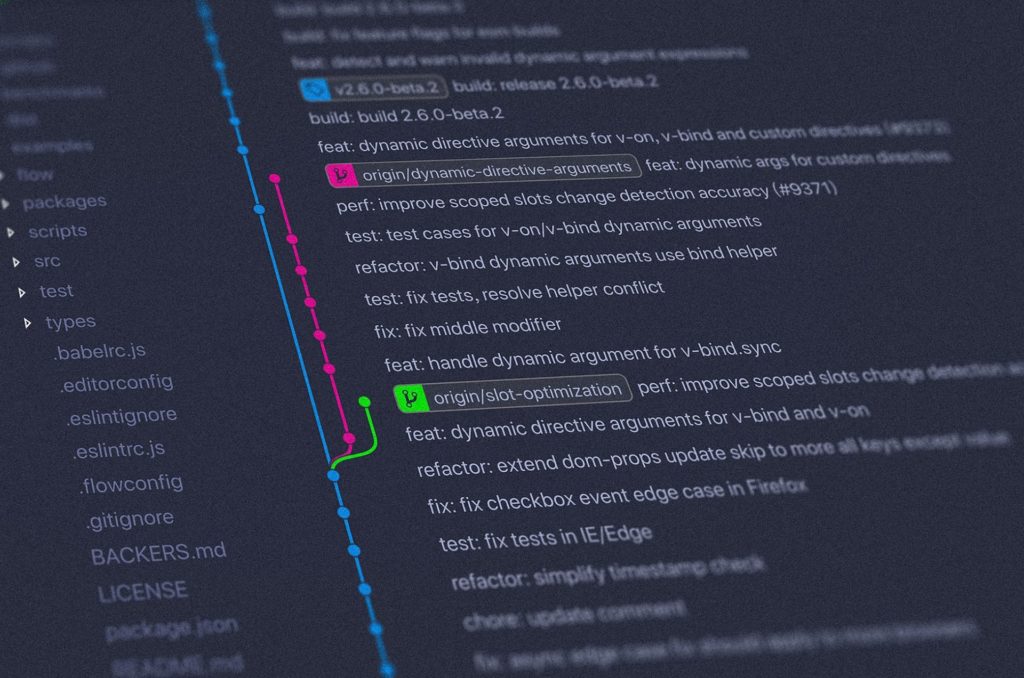Last updated on 2020/01/24
One of the most fulfilling programs that I have had the opportunity to build and work on is a co-op program in conjunction with a local university. This program is a wonderful opportunity for college students to get feet-wet in the real world. Over a period of 6 semesters they work every other semester with a local company. While I cannot speak for other organizations that participate in this program, for the young Engineers that come to work with my team, it truly is work as they are treated like any other teammate in regards to job duties and expectations.
This extension of normal business practices extends all the way to the hiring process. These co-ops go through the same hiring practices that we use for any other Engineer on the team. Interview, normal HR onboarding, the usual company meet-and-greet.
However, there has been one trend that has been more and more prevalent as more and more co-ops come through the program and more and more interviews occur. It is becoming harder and harder to find candidates that are excited about things other than Artificial Intelligence and Machine Learning.
This advice is NOT suggesting that a new Engineer avoid these fields. It IS a suggestion to be realistic about the opportunities for new Engineers around technology.
This advice is focusing on the fact that beyond the hallowed halls of higher learning, these areas of development and expertise in the real world are still small and represent a very small number of open jobs in the wider workforce.
Don’t believe this statement? Let’s look at the numbers.
First – set aside the salary numbers. You can look them up yourself either in the articles contained here or through simple google searching. Yes, the numbers there are eye-popping. No, you probably don’t have the skills yet to command salaries like these. Instead, focus on the amount of jobs out there. Let’s start with the headlines:
The No. 1 job of 2019 pays $140,000 — and its hiring growth has exploded 74%
Artificial Intelligence To Create 58 Million New Jobs By 2022, Says Report
“40 percent say they’re adding jobs due to AI” from AI careers and salaries: 7 telling statistics
Woohoo! Growth AND jobs! We can have our cake and eat it too. Or can we?
First, focus on the big numbers. “58 million new jobs by 2022“. This number is actually lower than some numbers stated in articles. These massive gains in jobs appear to be coming from a 2018 report from the World Economic Forum titled: The Future of Jobs Report. In this report it states that AI has the potential to create upwards of 133 million new jobs while displacing as many as 75 million jobs in the process. The critical element to note here is that these are not AI and ML programming jobs! These are a varied mix of different roles across all segments of the labor market.

Ok – so companies will need to replace lots of people, but who is going to write the software to make that happen? Depending on the source of the data, reports suggest that there are somewhere between 10,000 and 300,000 people worldwide with the skills to create these new frontiers in automation and computer development.
Element AI has rejoined the debate with a new estimate — and some transparency about its methodology. According to a report published Wednesday, there are about 22,000 PhD-educated researchers working on AI, of which about 3,000 are currently seeking work.
Just How Shallow is the Artificial Intelligence Talent Pool?
Hiring growth seeing a 74% growth rate on 22,000 jobs (+16,280) is a hugely different statistic than seeing even 5% growth on 1,365,500 jobs (+68,275). That number came from the stated number of Software Developer jobs in the US from the Bureau of Labor Statistics for 2018. It should be noted that the 5% growth number was made up to illustrate that even a fraction of the expected growth would greatly overshadow the larger percentage numbers in the AI and ML fields. The true number on that site actually calls for a 21% job growth and at least 284,100 new jobs being added in the next 10 years.
The point that is being made here is NOT that you should avoid this amazing new area of work and computer growth. It is simply that you should not put all of your eggs in that single basket.
Once you get past the astoundingly high salary numbers and potential growth figures please also try and take in a small dose of reality. The average company has no clue yet what to do with AI and ML. Also, there are orders of magnitude more jobs for software developers at average companies.
What about colleges? Typically colleges lead the way with new technologies through courses and research by tenured professors. However, a warning flag should be raised here. While most of the students looking for co-op positions talk a big game about wanting to get into AI and ML – it is a concept with no backing. Their nearly identical resumes still contain the same basic classes that all Software Engineers need. Data Structures. OOP. Some projects with an arduino. Maybe the AI classes are there, or maybe they aren’t. It is possible that the ML classes aren’t offered until they are seniors and have already completed their co-op rotations.
Or – it is entirely possible that these areas simply require higher levels and the topics aren’t even broached until you achieve a bachelors degree and are working on higher levels of education:
It requires advanced degrees in computer science, often a Ph.D. In a report, Paysa found that 35 percent of AI positions require a Ph.D. and 26 percent require a master’s degree. Why? Because AI is a rapidly growing field and when you study at the Ph.D. level and participate in academic projects, they tend to be innovative if not bleeding edge, and that gives the student the experience they need for the work environment.
Artificial Intelligence: Salaries Heading Skyward
Will it change in the future? I am sure that it will. Technology always trickles down and at some point general AI and ML classes will probably be offered by most standard Engineering programs. It will take even longer for the rest of the learning opportunities to catch up. Options like bootcamps and free learning courses online – the things that you scan do without going into deep student loan debt. Does this mean that you should you avoid these topics? Hell no!
Instead, try and look at things from a different angle that takes a step back and works on growing the appropriate skills for these types of roles. While everyone wants to work on the hot new thing – three years ago people were leaving college early to fill warehouses with graphics cards to crunch numbers for cryptocurrencies. Now everyone wants to jump on the Artificial Intelligence bandwagon. In a few years another new hot field will pop up.
So for new Engineers – instead of going into a job interview touting a professional goal of getting a job doing Artificial Intelligence or Machine Learning, consider one of the following options as all of them will help you to achieve these goals.

Option 1 – Go Back To School
Expertise in AI and ML currently appears to reside at the higher levels of education. So the first option is to simply go back to school and keep learning. Seeking a Masters or higher levels of education can be a good choice for quickly getting to the requisite knowledge levels that these job openings require.
However, additional school does carry risks. The cost is certainly prohibitive, and while this is offset by the large starting salaries for many of these roles, this is a big factor that should be carefully considered before plunging back into the world of academia.
Another item to consider is ability. Basic Engineering classes are hard. Obtaining an initial secondary degree in any Engineering discipline is difficult. Going on to higher order programs can lead to challenges that are orders of magnitude more difficult. This path is not for everyone even if you have the ability to conceptualize and understand these esoteric concepts.

Option 2 – Get Real World Development Experience
Maybe going back to school is not in the cards. That is fine – so why not space out the timing a little bit? Right now is a great time to go build a few years of experience in the real world. The amount of jobs are plentiful and the experienced to be gained is invaluable.
No knowledge is bad if it helps you to be better prepared for the future. There is still a ton to learn no matter how much you know. Working on teams, being a leader, exploring new technology, building amazing products, and much more understanding can come through spending a few years in the workforce. Consider this a resume building action where the skills learned in school can be tested, honed, and polished.
Remember – this is a marathon, not a sprint!

Option 3 – Focus on Personal Learning and Projects
Just because you are done with school does not stop the learning process. This will continue as new roles are introduced and new challenges are accepted and worked on. One of the biggest steps that can drive new knowledge is through personal projects and personal learning.
While the generally recognized expertise is still locked up in the ivory towers, we stand at the beginnings of an amazing new world. Open source coding is an amazing resource that anyone can use. With some careful research and planning, personal projects can provide as much insight into the inner workings of AI and ML as any college degree program. It may take more inner fire and motivation to build your own school and keep at it, but anyone with the desire can go out and learn about any subject. So why not AI? Or ML?
You will never have as much time to go explore and learn as you do right this second. What are you waiting for?
Option 4 – Build a Portfolio
Personal knowledge is great, but if the goal is to build a few years’ worth of experience and then target that coveted AI Engineer role or ML Developer title you will need something more than a bachelors degree and a few years of development experience.
This time at the start of a career is often accompanied by the most free time that you will have in your life. Sure, growing up you had a lot of free time but the constraints of lack of money and the inability to transport yourself around place severe limits on growth opportunities. Most initial Engineers are just getting into the workforce, have on average reasonably high salaries, and either haven’t yet settled down or are just at the beginning of starting a family.
This career freedom with the means to pursue hobbies creates fertile ground for pursuing AI and ML projects and knowledge. Yet, how does this translate into a future job in these areas?
Taking the time to build up a portfolio demonstrating knowledge and experience can show your experience and knowledge. And we aren’t talking about a shiny blue binder with code snippets. Creating public git repositories, writing articles on Medium, and contributing to open source projects are all fantastic methods towards building a portfolio. Maybe starting a blog or a website alongside this work would help.
No matter what, taking the time to get your passion exposed for the world to see is a good thing! That is what is shown when talking about a developer’s portfolio.

Option 5 – Network & Build Connections
As described above – new Engineers typically have much more free time than they will as their career progresses. Family, kids, more responsibilities, adopting that 5th dog or cat – all of these things can soak up time at amazing rates. Therefore, this is a great time to get out and meet people.
Look for local meetups, conferences, and events. They are all over with like-minded people. If nothing else going to these events builds your knowledge and provides new avenues to go explore and learn. In the best case scenarios these functions provide opportunities to meet people that can either connect you with the right people in your target field or, better yet, with the people hiring for roles in your ideal role.
Networking can be difficult for Engineers – we can’t re-program humans to meet our expectations. However, the connections created through shared experiences can be incredibly rewarding and fulfilling throughout your career.
Let me repeat something about this message. This is not a plea for new Engineers to avoid AI and ML! This is a request to consider being a little more realistic about the immediate opportunities presented by these exciting technologies and to possibly consider a backup plan if your first choices don’t pan out. The options listed above are good on their own or together in a group. Either way, whether you jump into the deep end and hold out for that initial perfect job or go out and build your resume, skills, and experience, I wish you luck in your career. Thanks for reading!




Comments are closed, but trackbacks and pingbacks are open.